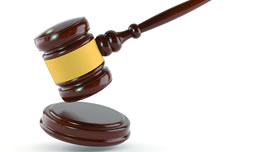Directors and insolvency
Overview
Becoming a director gives status and a direct impact on the strategy and success of a business. How free is a director to act alone? What obligations and duties should a director bear in mind?
This is the fourth of four articles summarising the general duties and potential liabilities of a director of an English private company (which is not in a group with a PLC).
Day-to-day management of a company is delegated to the directors by its shareholders. Directors are initially appointed by the shareholders and can usually themselves appoint additional directors up to any limit set by the articles of association.
 The decisions of the directors are taken collectively by the board of directors. A director cannot act as a director on his own unless only one director has been appointed. Decisions are either taken by majority vote at board meetings or by the signing by all the directors of a written resolution.
The decisions of the directors are taken collectively by the board of directors. A director cannot act as a director on his own unless only one director has been appointed. Decisions are either taken by majority vote at board meetings or by the signing by all the directors of a written resolution.
The director's role and his powers are primarily defined in the company's articles and, if he is also an employee, in his service contract.
The mere fact of appointment does not normally give a director any executive powers. Most directors are, however, also employees of the company with specific powers delegated to them. A managing director usually has extensive powers to take day-to-day decisions on behalf of the company. Other directors such as sales directors or finance directors will have a more limited role.
Directors owe a duty to the company and, if insolvency threatens, to creditors (see below). Certain key duties of directors have been placed on a statutory footing under the Companies Act 2006 (the "Act"). These duties are owed to the company. (See What obligations does a director have? Part I: statutory duties and Part II: other general duties.)
Directors are also subject to a number of other statutory requirements and restrictions. These include a duty to keep proper books and records and restrictions on entering into certain transactions with the company or accepting loans from the company. Breach of these duties and requirements can result in a director being disqualified from acting as a director and in many cases can lead to the director incurring personal liability (see Personal liabilities of directors). Insurance can be obtained to cover some cases of personal liability.
The following provisions of the Insolvency Act 1986 need to be borne in mind by directors. Although they only apply when a company has gone into liquidation they relate to the conduct of the directors before the liquidation.
Section 214 – Wrongful trading
This section provides that a liquidator of an insolvent company may ask for an order from the courts making a director personally liable to contribute to the company's assets. The liability will arise where a director knew or ought to have concluded that there was no reasonable prospect that the company would avoid going into insolvent liquidation and then failed to take every step with a view to minimising the potential loss to the company's creditors that he ought to have taken.
For the purposes of this section the facts which the person concerned ought to know or ascertain, the conclusions which he ought to reach and the steps which he ought to take are those which would be known, ascertained or taken by a reasonably diligent person having both the general knowledge, skill and experience that may reasonably be expected of a person carrying out the same function as is carried out by the director (an objective test) and the general knowledge, skill and experience which the relevant director actually has (a subjective test). The effect of this is that an experienced director in a large company with sophisticated accounting procedures and equipment will be required to conduct himself to a greater standard than an inexperienced director in a small company with simpler accounting procedures. But even the inexperienced director in a small company must make sure that he has adequate knowledge and skill and that the company's accounting procedures and equipment are adequate to produce the information required to show its financial position. The section applies equally to non-executive directors as to executive directors.
The dilemma facing a director of a company which is at significant risk of going into insolvent liquidation is whether to carry on trading or put the company into administration or liquidation or to invite the appointment of administrative receivers. The duty imposed is to minimise the loss to creditors and the steps to be taken will vary from case to case. A careful evaluation of the situation must be carried out with the aid of professional advisers (particularly insolvency practitioners) to establish the best course to take. All decisions taken and the reasons for them should be regularly recorded in board minutes. This section applies to any person who is or was a director of a company which subsequently goes into insolvent liquidation and it is not therefore possible to escape liability simply by resigning.
Section 213 – Fraudulent trading
 Any person who is knowingly party to the carrying on of any business of the company with the intent to defraud creditors (including potential creditors) of the company or creditors of any other person or for any fraudulent purpose will be personally liable to contribute to the company's assets. It has been held that an intent to defraud may be inferred if a person obtains credit when he knows that there is no good reason for thinking that funds will be available to pay the debt. However, there must be evidence to justify a finding of actual dishonesty. If this is proved then the director will, in addition to being liable to contribute to the company's assets, be guilty of a criminal offence.
Any person who is knowingly party to the carrying on of any business of the company with the intent to defraud creditors (including potential creditors) of the company or creditors of any other person or for any fraudulent purpose will be personally liable to contribute to the company's assets. It has been held that an intent to defraud may be inferred if a person obtains credit when he knows that there is no good reason for thinking that funds will be available to pay the debt. However, there must be evidence to justify a finding of actual dishonesty. If this is proved then the director will, in addition to being liable to contribute to the company's assets, be guilty of a criminal offence.
Section 212 – Recovery for misfeasance
The official receiver, a liquidator, a creditor or a shareholder can recover money or damages from officers of the company or those concerned in its management, who have misapplied or retained or become liable or accountable for any money or property of the company, or have been guilty of misfeasance or breach of fiduciary or other duties in relation to the company. This section will cover, among other things, improper payments of dividends, application of monies for an improper or unauthorised purpose, application of monies contrary to the Companies Acts, and unauthorised loans or payments of unauthorised remuneration to its directors. It should be noted that this section applies in addition to the rules relating to common law misfeasance but provides a speedier remedy than is available under the common law.
Sections 238 – Transactions at an undervalue
A transaction at an undervalue occurs when a company disposes of its assets for significantly less than they are worth.
A liquidator can apply to have the transaction set aside if it occurred within two years of the company's liquidation.
Section 239 – Preferences
A preference is a transaction which has the effect of placing a creditor in a better position if the company goes into liquidation than if the transaction had not occurred.
If the transaction occurs within six months before the company's liquidation, the liquidator can apply to have it set aside but he must prove that the directors in entering into the transaction were influenced by a desire to produce the preferential effect.
In the case of a transaction with a creditor who is a connected person (for example any of the company's shareholders, subsidiaries or directors) the period of six months is extended to two years and it is also presumed (unless the contrary can be proved) that there was a desire to prefer the creditor.
Disqualification
A director faces disqualification:
- for a maximum of five years for persistent default in various duties to submit documents to the Registrar of Companies; and
- for a period of between two and 15 years under section 6 of the Company Directors Disqualification Act 1986 on the ground that he is unfit to be concerned in the management of a company. In determining unfitness the court considers (among other things) whether the director has been a party to the making of a preference, a transaction at an undervalue or to wrongful or fraudulent trading and whether he has failed to comply with the various duties relating to the keeping of books of account and the preparation of annual accounts or has breached any fiduciary or other duty owed to the company.
The disqualification will mean that the director will not be able to be involved in the formation, promotion or management of any company in the United Kingdom during the disqualification period.
Relief from liability, indemnity and insurance
Relief in court proceedings
 A court may relieve a director, either wholly or in part, from liability arising from negligence, default, breach of duty or breach of trust, if it concludes that he ‘acted honestly and reasonably, and that having regard to all the circumstances of the case (including those connected with his appointment) he ought fairly to be excused’. This section does not apply to liability for wrongful trading.
A court may relieve a director, either wholly or in part, from liability arising from negligence, default, breach of duty or breach of trust, if it concludes that he ‘acted honestly and reasonably, and that having regard to all the circumstances of the case (including those connected with his appointment) he ought fairly to be excused’. This section does not apply to liability for wrongful trading.
Indemnity
A company is permitted to indemnify a director against liability incurred;
- in defending civil proceedings brought against him by third parties; or by the company or a group company where judgment is given in favour of the director; or
- in defending criminal or regulatory proceedings where the director is acquitted.
Articles of association usually contain provision for such an indemnity.
Insurance
A company may obtain insurance against the liability of a director for negligence, default, breach of duty or breach of trust in relation to the company.
If you have any questions on this article or would like to propose a subject to be addressed by Synapse please contact us.


